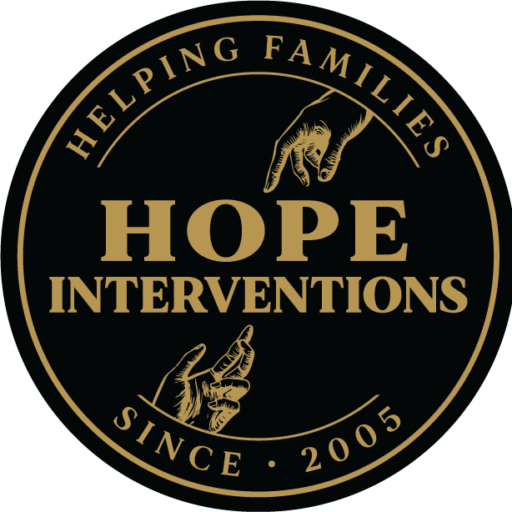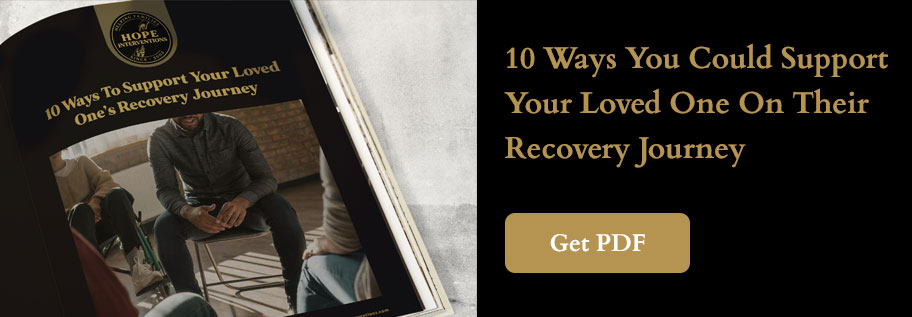Glossary Of Addiction Terms
Abstinence
The act of refraining from using any mind or body-altering substance, legally, or illegally.
Addict
Individuals with an addictive disorder.
Addiction
A repeated activity that continuously causes harm to oneself or others.
Addictive Personality
An addictive personality refers to a hypothesized set of personality traits that make an individual predisposed to developing addictions
Alcoholics Anonymous (AA)
Alcoholics Anonymous is an international mutual aid fellowship of alcoholics dedicated to abstinence-based recovery from alcoholism through its spiritually-inclined Twelve Step program. Following its Twelve Traditions, AA is non-professional, non-denominational, apolitical, and unaffiliated.
Amphetamine
A stimulant that can be used to treat symptoms of ADHD, however, can be highly addictive and easily abused.
Analgesics
A class of drugs that are designed to relieve pain without causing the loss of consciousness.
AOD
This stands for Alcohol or Drugs.
Assessment
A professional evaluation of a person’s overall medical history, substance use history, current health status, and physical and mental health.
Alcohol
colorless volatile flammable liquid that is produced by the natural fermentation of sugars and is the intoxicating constituent of wine, beer, spirits, and other drinks
Adolescent
(of a young person) in the process of developing from a child into an adult.
Adderall
Adderall and Mydayis are trade names for a combination drug called mixed amphetamine salts containing four salts of amphetamine. a stimulant drug that is a mixture of two amphetamines, used to treat attention deficit disorder and narcolepsy.
Addiction-free
a state in which an individual is not dependent on or controlled by a substance or behavior that is harmful and compulsive.
Benzyl
Benzylpiperazine (BZP) is a substance often used as a recreational drug and is known to have euphoriant and stimulant properties.
Case management
Case management services are those activities provided to assist and support individuals in gaining access to needed medical, social, educational, and other services essential to meeting basic human needs.
Clinical Opiate Withdrawal Scale (COWS)
The Clinical Opiate Withdrawal Scale (COWS) is an 11-item scale designed to be administered by a clinician. This tool can be used in both inpatient and outpatient settings to consistently rate common signs and symptoms of opiate withdrawal and monitor these symptoms over time.
Codeine
A pain-relieving sedative agent contained in opium.
Cold Turkey
Abruptly quitting a drug by choice and without assistance in order to try to quit long-term.
Co-Occurring
People who have substance use disorders, as well as mental health disorders, are diagnosed as having co-occurring disorders, or dual disorders. This is also sometimes called a dual diagnosis.
Craving
A strong desire to use a substance or an addictive agent. BrightView educates patients on how to identify cravings and triggers, and how to successfully respond to these feelings.
Crisis
a time of intense difficulty, trouble, or danger. the turning point of a disease when an important change takes place, indicating either recovery or death.
Confidentiality
the state of keeping or being kept secret or private.
Coach
someone who has achieved long-term recovery and now works supporting those who are newly sober.
Coaching
To help a person change in the way they wish and help them go in the direction they want to go.
Cocaine
an addictive drug derived from coca or prepared synthetically used as an illegal stimulant and sometimes medicinally as a local anesthetic.
Companionship
a human services-related career path with the goal of helping the client maintain total abstinence or harm reduction from any addiction, and to establish healthy routines at home or after checking out of a residential treatment facility.
Detox/detoxification
The literal term is removing toxins from one’s body, or a period of time in which one abstains from unhealthy substances.
Depression
Depression (also called a major depressive disorder or clinical depression) is a common but serious mood disorder. It causes severe symptoms that affect how you feel, think, and handle daily activities, such as sleeping, eating, or working. Source: National Institute of Mental Health.
Diagnostic evaluation
A process in which a professional uses a set of criteria to assess whether someone exhibits signs of addiction.
Dopamine
Considered a “feel good” neurotransmitter, the chemical that boosts mood, motivation, and attention, and also helps regulate movement, learning, and emotional responses.
Dual Diagnosis
This refers to someone who has been diagnosed with more than one substance addiction.
DOC
This stands for a person’s “Drug of Choice”, which is/are the drug/drugs (or alcohol) that a person is currently struggling with in their addiction.
DUI
Driving under the influence is the offense of driving, operating, or being in control of a vehicle while impaired by alcohol or other drugs, to a level that renders the driver incapable of operating a motor vehicle safely.
Drug recovery
the process of medical or psychotherapeutic treatment for dependency on psychoactive substances such as alcohol, prescription drugs, and street drugs such as cannabis, cocaine, heroin or amphetamines.
Diagnose
identify the nature of (an illness or other problem) by examination of the symptoms.
Drug
a medicine or other substance that has a physiological effect when ingested or otherwise introduced into the body.
Ethanol
The principal ingredient in alcohol.
Escort
accompany (someone or something) somewhere, especially for protection or security, or as a mark of rank.
Fentanyl
accompany (someone or something) somewhere, especially for protection or security, or as a mark of rank.
Intervention
It often involves a group of individuals, usually loved ones or close friends, who are ready to confront a person with addiction in an effort to persuade them to seek professional help for their substance abuse.
Interventionist
a trained professional who specializes in facilitating interventions for individuals struggling with addiction, substance abuse, or other destructive behaviors.
Mental Health
Mental health refers to cognitive, behavioral, and emotional well-being. It is all about how people think, feel, and behave. People sometimes use the term “mental health” to mean the absence of a mental disorder.
Methadone
The most common medical use for methadone is as a legal substitute for heroin in treatment programs for drug addiction, it is also considered a synthetic opiate.
Methamphetamine
According to medlineplus.gov, Methamphetamine – meth for short – is a very addictive stimulant drug. It is a powder that can be made into a pill or a shiny rock (called a crystal). The powder can be eaten or snorted up the nose. It can also be mixed with liquid and injected into your body with a needle. Crystal meth is smoked in a small glass pipe.
Marijuana
cannabis, especially as smoked or consumed as a psychoactive (mind-altering) drug.
Opiates
a drug derived from or related to opium. an alkaloid substance derived from opium. It differs from the similar term opioid in that the latter is used to designate all substances, both natural and synthetic, that bind to opioid receptors in the brain.
Opioids
a compound resembling opium in addictive properties or physiological effects. a class of drugs that derive from, or mimic, natural substances found in the opium poppy plant. Opioids work in the brain to produce a variety of effects, including pain relief.
Post-Acute Withdrawal Syndrome (PAWS)
According to American Addictions Centers, The term PAWS was created to describe the cluster of ongoing withdrawal symptoms, which are largely psychological and mood-related, that can continue after acute withdrawal symptoms have gone away. Although post-acute withdrawal rarely involves aches and pains, nausea, cramping, headaches, or other physical symptoms, it can be just as intense as acute withdrawal and still puts a person at risk of relapse, as they may return to drug use in an attempt to stop the discomfort.
Post-Acute Withdrawal Syndrome (PAWS)
According to American Addictions Centers, The term PAWS was created to describe the cluster of ongoing withdrawal symptoms, which are largely psychological and mood-related, that can continue after acute withdrawal symptoms have gone away. Although post-acute withdrawal rarely involves aches and pains, nausea, cramping, headaches, or other physical symptoms, it can be just as intense as acute withdrawal and still puts a person at risk of relapse, as they may return to drug use in an attempt to stop the discomfort.
Placebo
An example of a placebo is in a controlled clinical trial, one group may be given a real medication while another group is given a placebo that looks just like it in order to learn if the differences observed are due to the medication or to the power of suggestion. Placebos are widely used in drug trials.
Private Concierge
a person who makes arrangements and performs tasks on behalf of busy people.
Placement
the action of putting someone or something in a particular place or the fact of being placed.
Prescription drugs
a pharmaceutical drug that is permitted to be dispensed only to those with a medical prescription.
Privacy
the state or condition of being free from being observed or disturbed by other people.
Recidivism
The probability of a person “re-offend” or relapsing, using drugs or alcohol when attempting to stay sober.
Relapse
According to the National Institute on Drug Abuse, “people recovering from addiction often have one or more relapses along the way.” Relapse is when an addict returns to alcohol or drugs after a period of sobriety. A relapse can be a detrimental and deadly affair with devastating consequences.
Route of Administration
The path by which a drug, fluid, or other substance is taken into the body. For example, intranasal (through the nose), and oral (through the mouth).
Recovery
a return to a normal state of health, mind, or strength.
Recovery coaching
a form of strengths-based support for people with addictions or in recovery from alcohol, other drugs, codependency, or other addictive behaviors.
Serotonin
A chemical, most commonly found in the brain, that contributes to well-being and happiness.
Stigma
A powerful, negative perception is commonly associated with substance abuse. A negative connotation and/or assumption one might have against someone else for their lifestyle choice.
Substance Use Disorder (SUD)
The medically appropriate way to refer to someone who is addicted to drugs or alcohol. A person with SUD is considered a person first, with appropriate language.
Substance Abuse
overindulgence in or dependence on an addictive substance, especially alcohol or drugs.
Sober Companionship
a human services-related career path with the goal of helping the client maintain total abstinence or harm reduction from any addiction, and to establish healthy routines at home or after checking out of a residential treatment facility.
Sober Transport
A driver who offers sober transportation services does more than drive to and from one point to another.
Substance Abuse Interventions
a carefully planned process that family and friends can do, working with a doctor or another health care professional, such as a licensed alcohol and drug counselor. An intervention professional, also known as an interventionist, can direct an intervention.
Seamless treatment
a coordinated and integrated approach to healthcare delivery that aims to improve patient outcomes and experiences.
Sober escort
someone who can provide constant assistance and resources to a client that is striving to sustain a sober lifestyle.
Trigger
External or internal cues cause a person in recovery to crave drugs and perhaps even relapse.
Tolerance
A person’s reaction to a drug decreases as they continue to use it, which means that they might need more and more to get the feeling they initially felt when they first used that particular drug, this is also known as “chasing the high”.
Treatment
the manner in which someone behaves toward or deals with someone or something. a session of medical care or the administration of a dose of medicine.
Withdrawal
The abrupt quitting of a substance a person is addicted to
Withdrawal/withdrawal symptoms
Cognitive and physical symptoms that occur after chronic use of a drug are decreased abruptly or stopped among people who have developed a tolerance to a drug. Symptoms vary based on the drug being stopped. Withdrawal symptoms vary from person to person, with the most common symptoms being compared to having a very bad case of the flu often with chills, body aches, diarrhea, nausea, and restless legs.

